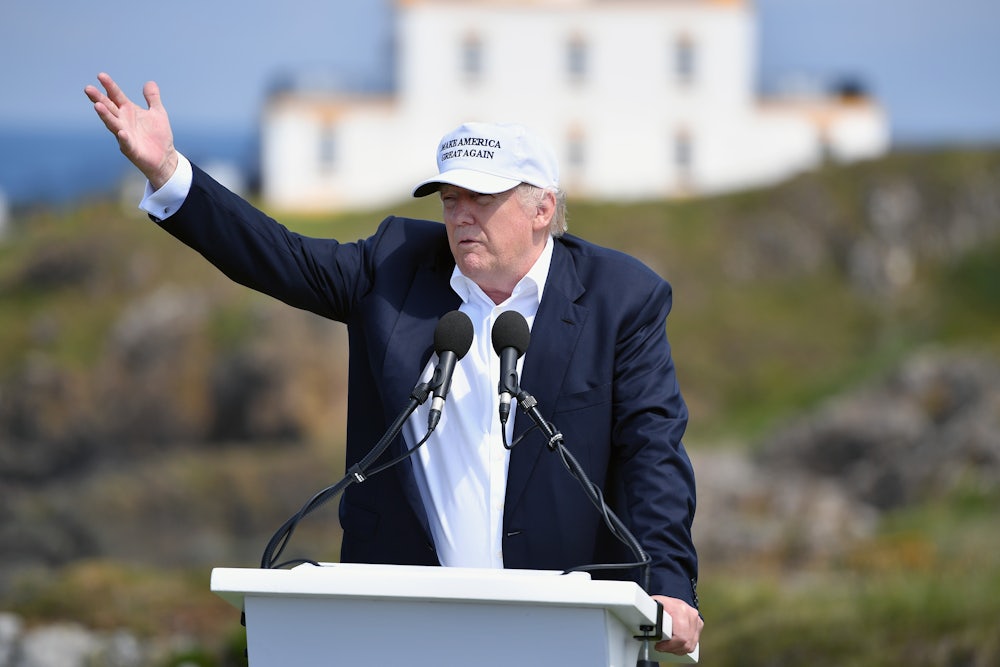My colleague Ryu Spaeth argues that the lesson of the Brexit is to “[t]ake Donald Trump very seriously.”
My view is somewhat different. The success of the “Leave” campaign doesn’t tell us anything about American right-wing populism that Trump hasn’t already taught us. What would be alarming is if Brexit represented evidence that the Trump phenomenon is a majority movement in factional clothing.
But I don’t think it does.
Whereas Leave and Remain were neck and neck in polls leading up to the referendum, with Leave leading several, Trump has consistently polled behind Hillary Clinton and generic Democrats. Whereas Leave is a ballot measure asking a single, concrete policy proposal (though one with vast implications), Trump is not a ballot measure at all. He is a candidate who contains multitudes—often contradictory multitudes. He represents both a rejection of the governing elite and white, male supremacy. He represents concepts like protectionism and isolationism, but also elitism and bellicosity. If it were constitutional in America to distill Trump’s platform into a series of referenda, some of it would probably pass. But our system of government differs from England’s in many, many critical ways, one of which is that we vest policymaking in individuals and parties with extensive agendas, not in voters on an issue-by-issue basis. That Trump’s suspicion of free trade is popular can’t overwhelm politically the fact that he’s also an erratic racist running to lead a diverse society.
If Brexit were capable of plunging the United States into a recession immediately, it might alter our domestic politics, and make it appear in hindsight that we’d underestimated our country’s nativist turn. But absent that, it’s merely a reminder that Trump is a disrupter of American conservatism, not of American democracy altogether.
